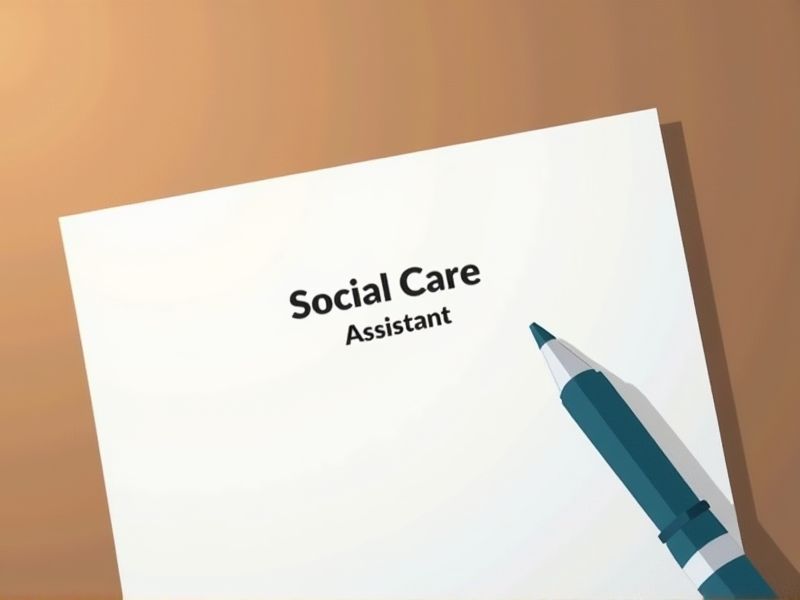
Social Care Assistants play a crucial role in supporting individuals with diverse needs, necessitating specialized knowledge and skills. Professional certifications ensure that these assistants possess the essential competencies to provide safe and effective care. Having the right certifications not only improves service quality but also satisfies employer and regulatory requirements. Here are some key certifications you might require to become a Social Care Assistant.
Care Certificate
The Care Certificate establishes a set of minimum standards for social care assistants, ensuring that they have the fundamental skills and knowledge required to deliver safe, compassionate care. Adopting this certificate across the sector leads to more consistent care quality and helps build public trust in care services. By providing structured learning, the Care Certificate reduces the variability in training, improving the confidence and competence of new care workers. Compliance with these standards is often required by employers and regulatory bodies, impacting job opportunities and career progression within the field.
First Aid and CPR Certification
Having First Aid and CPR certification equips Social Care Assistants with the skills to respond effectively to medical emergencies, increasing patient safety. This certification ensures that assistants can provide basic life support, which can be crucial during life-threatening situations. Knowledge of CPR and first aid fosters confidence in both the caregiver and the family members, enhancing trust and communication. Employers often require this certification to comply with health and safety regulations, ensuring a competent and prepared workforce.
Safeguarding Adults Certification
The need for Safeguarding Adults Certification for Social Care Assistants arises from the necessity to ensure they are equipped with the knowledge to protect vulnerable adults from harm. This certification provides a structured understanding of signs of abuse and neglect, enabling timely intervention. By possessing this certification, Social Care Assistants can conduct their roles with informed vigilance, reducing risks to clients. The certification aligns with legal and ethical obligations, reinforcing accountability and professional standards in social care practices.
Safeguarding Children Certification
The Safeguarding Children Certification equips social care assistants with the necessary knowledge to identify and respond to signs of abuse or neglect, ensuring children's safety. Without this certification, social care assistants may lack the critical skills needed to create safe environments and identify potential risk factors in children's lives. Certification requirements often align with legal obligations, reinforcing the social care assistant's role in complying with child protection laws and regulations. Proper training through certification enables social care assistants to collaborate effectively with other professionals involved in children's well-being.
Manual Handling Certification
Manual handling certification ensures that social care assistants understand the correct techniques to prevent injuries while lifting or moving patients, which directly reduces workplace accidents. Such certification enhances knowledge regarding the use of equipment like hoists or slings, leading to safer handling procedures. Regulatory compliance often mandates this certification to uphold specific safety standards within care facilities. Training contributes to greater confidence among social care workers when performing physically demanding tasks, ultimately improving overall patient care outcomes.
Infection Prevention and Control Certification
Infection Prevention and Control Certification equips social care assistants with essential knowledge to minimize infection risk, protecting vulnerable populations in care settings. It enhances understanding of hygiene protocols, thereby improving patients' health outcomes. Certified assistants can implement effective infection control measures, reducing overall healthcare-associated infections. Regulatory compliance often necessitates this certification, ensuring adherence to industry standards.
Medication Administration Training
Medication Administration Training is necessary for Social Care Assistants because it ensures the safe and accurate dispensing of medications to clients, reducing potential health risks. This training provides a clear understanding of how medications work, including potential side effects, which is crucial for monitoring and responding to client needs effectively. It improves compliance with legal and regulatory requirements, preventing errors that could lead to legal consequences for care facilities. Equipped with this knowledge, Social Care Assistants can enhance the quality of care, thereby improving client outcomes and satisfaction.
Dementia Care Certification
Social Care Assistants equipped with Dementia Care Certification can provide more tailored and effective support for individuals with dementia, addressing specific needs and improving their quality of life. This certification enhances understanding of dementia-related behaviors, enabling caregivers to respond appropriately and reduce potential distress for patients. With this specialized knowledge, caregivers can better communicate and build trust with patients, fostering more meaningful interactions. Certification also increases the professional credibility of caregivers, which can lead to improved patient outcomes and satisfaction.
Mental Health Awareness Certification
Social care assistants frequently encounter individuals with mental health challenges, and having a certification ensures they possess the necessary skills and knowledge to address these issues effectively. A formal certification helps in recognizing and identifying symptoms early, which can lead to timely and appropriate interventions. This certification also equips social care assistants with strategies to manage stress and build resilience in themselves and those they support. It can enhance communication capabilities, fostering a more compassionate and understanding environment for care recipients.
Health and Safety Certification
Health and Safety Certification ensures that a Social Care Assistant understands protocols to protect themselves and their clients, reducing the risk of harm. Knowledge gained from this certification enables the assistant to identify potential hazards in various care settings. This certification establishes credibility and trust with both employers and clients, highlighting a commitment to safety standards. With a solid grasp of health regulations, certified assistants contribute to creating a safer and more efficient care environment.
Summary
When you, as a Social Care Assistant, obtain certifications, you enhance your professional credibility and skill set. This often leads to increased job opportunities and potential for higher salaries in the field. Organizations tend to prefer certified individuals, which can improve your employability and career progression. Certified assistants can deliver higher quality care, positively impacting client satisfaction and well-being.
